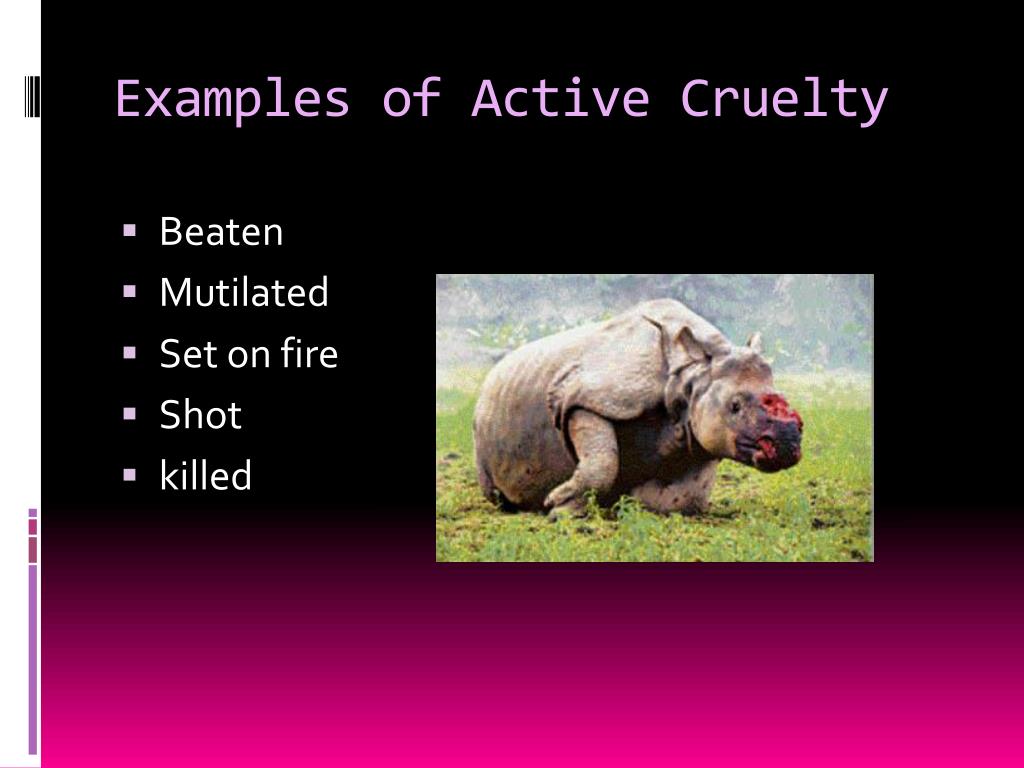The intricate tapestry of human-animal relationships is woven with strands of affection, understanding, and, tragically, a darker thread of cruelty. The question of whether there exists a justified reason to harm or mock an animal is one steeped in ethical and philosophical dilemmas. To navigate this murky terrain, one must first examine the parameters of justification and the moral paradigms that govern our treatment of sentient beings.
At the core of the argument lies the concept of sentience—the capacity to experience feelings such as pain, joy, fear, and affection. Animals, like humans, exhibit complex emotional behaviors. To harm or mock an animal is tantamount to undermining its existential experience. This leads us to ponder a fundamental truth: if an action is devoid of compassion or empathy, can it ever be justified? The prospect of inflicting suffering raises pressing ethical questions that beckon deeper inquiry.
To explore this, consider an allegorical landscape where the roles of human and animal are reversed. Imagine a world where animals possess the faculties of reason and societal structure as humans do. What would we say of a sentient species inflicting pain upon humans for mere entertainment? The mere thought is unsettling and sheds light on the moral dissonance inherent in such actions. In this way, the argument for harm and mockery, often cloaked in cultural practices or outdated traditions, begins to unravel.
Animal cruelty has not only physical implications—visible marks and wounds—but also emotional repercussions that can ripple through communities. Cultural narratives often perpetuate a cycle of inattention to animal suffering, where mockery is normalized or trivialized. Historical contexts abound with instances where animals were exploited for amusement in circus acts or other public spectacles. Such practices, while once seemingly accepted, have increasingly come under scrutiny as a reflection of a society’s moral compass.
Defining justification requires navigating the spectral planes of necessity, intent, and outcome. The argument frequently invoked is one of practicality: in certain instances, animals are harmed for perceived human benefit—be it for food, research, or clothing. However, the fundamental questions remain: at what cost? Can we truly deem it justifiable to incur suffering upon another being, even if the intention veils itself in the guise of necessity or advancement? This reasoning raises the specter of utilitarianism—the greatest good for the greatest number—but can we, in good conscience, calculate suffering in such utilitarian terms?
In the medical research realm, the debate intensifies. The scientific community often cites the necessity of animal testing for human health advancements. Here, the balance between ethical considerations and potential benefits strikes at the heart of the matter. In this binary conflict between human welfare and animal rights, one must critically evaluate the ethics of consent and suffering. As sentient beings, animals lack the capacity to consent to such treatments. Hence, the justification of their suffering for human gain becomes a chasm that deepens our moral quandaries.
Mockery, on the other hand, is devoid of even the thin veil of justification that necessity presents. Making an animal the subject of ridicule—often depicted within the realms of media and entertainment—mocks its innate dignity. This act speaks volumes about the perpetrator’s character; it reflects a profound disconnect from empathy and an elevation of one’s own amusement above another’s inherent worth. The mocking of animals reveals stark social hierarchies where power dynamics dictate moral actions.
Furthermore, the enlightenment gained from societal reflection can lead to transformative change. As our understanding of animal cognition and emotional capacity evolves, so too must our ethical frameworks. Social movements advocating for animal rights underscore a shift toward a more compassionate society—one that recognizes the intrinsic value of all sentient beings. The rise of veganism and ethical consumerism emphasizes conscious choices aimed at minimizing harm and redefining necessity in accordance with humane principles.
The metaphor of planting seeds in a garden offers insight into this dialogue. When we nurture respect and ethical treatment, we cultivate a societal orchard flourishing with compassion and understanding. Conversely, neglecting this responsibility leads to barren landscapes of indifference, where cruelty festers. By altering our perspectives and determining to foster awareness, we can root out the weeds of cruelty and pave a path towards ethical coexistence.
In conclusion, interrogating the idea of justification for harming or mocking animals invites us to reflect on our ethical responsibilities. As sentient beings capable of experiencing a spectrum of emotions, animals deserve our respect and protection. While necessity and utility have long been invoked in defense of such actions, they crumble under scrutiny, revealing ethical vacuity. Each instance of cruelty or mockery signifies a failure on our part—a profound departure from empathy. To champion the dignity of all animals is not only a testament to our moral integrity but also a prerequisite for achieving an enlightened society where empathy prevails over indifference.








